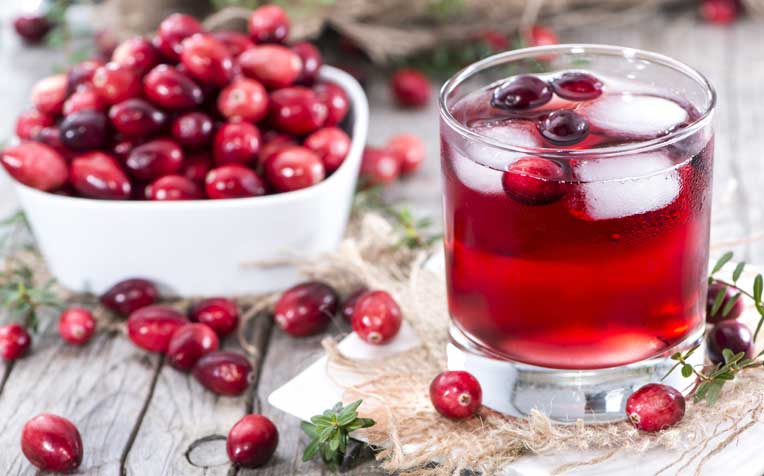1. Cranberry juice may help prevent UTIs by preventing bacterial adhesion, but evidence is mixed regarding its effectiveness during menstration.
2. Cranberries contain phytochemicals that show promise in slowing of cancer growth, but more research is needed.
3. Enjoy cranberries for their nutritional value (low calories and high fiber), but beware excessive juice intake which may have a laxative effect.

Cranberry juice - in moderate amounts, has no known harmful effects, but may have a laxative effect when taken excessively.
The health benefits of cranberries and cranberry juice
Some women are more prone to urinary tract infections (UTI) during their periods, so they take cranberry juice to prevent the infection during this time.
"Cranberries may work by preventing the adhesion of bacteria, most commonly the E. coli bacteria, to the wall of the urinary bladder," says Ms Ang Bixia, Senior Dietitian, Department of Nutrition & Dietetics at KK Women's and Children's Hospital (KKH), a member of the SingHealth group.
However, cranberries (particularly in the form of cranberry juice) are considered more of an alternative medicine or health supplement for this ailment.
Can cranberry juice prevent urinary tract infections in women?
A review of 50 studies found that the use of cranberry products, including cranberry juice) may help to prevent UTIs for women with recurrent UTIs, in children and in people susceptible to UTIs following interventions e.g. bladder radiotherapy).
However, the current available research does not show that the benefits extend to elderly, patients with bladder emptying problems or pregnant women.
What role do cranberries play in the battle against cancer?
Cranberries are rich in phytochemicals such as flavonoids, anthocyanins, proanthocyanidins and phenolic acids, which have antioxidant properties. In experiments on colon oesophageal and breast cancer cells grown in the laboratory, cranberry extracts have been found to slow cancer cell growth. A study reported that the addition of cranberry extract to standard chemotherapy increased the effectiveness of the chemotherapy several fold, when used in the treatment of ovarian cancer cells grown in the laboratory.
Although these reports are interesting and point to a possible role of cranberries in cancer treatment, there is still a long way to go before we say that cranberries have any anti-cancer benefit, and active research is ongoing to further address these questions.
The exact compound in cranberries that is responsible for any anti-cancer benefit needs to be identified. In addition, more studies would be required, first, in laboratory animals, to test the effect of cranberries on the development and/or treatment of cancer, and to determine the optimum dose to be used.
"If proven safe, studies can then be conducted on humans to evaluate the safety, effectiveness and role of cranberries. Only after these studies can we reach a conclusion on their true anti-cancer properties in humans," says Clincal Associate Professor Ang Mei-Kim, Senior Consultant, Department of Medical Oncology at National Cancer Centre Singapore (NCCS), a member of the SingHealth group.
Estimated nutrient content of cranberries (raw)
Serving size: 110g
Energy: 51 kcal
Carbohydrate: 13g
Dietary fiber: 5g
Protein: 0g
Fat: 0g
Cholesterol: 0mg
Sodium: 2mg
Ref: W09
Check out other food and nutrition articles:
Best Foods for Periods/Menstual Cramps
Dried Fruits: Nutritional Benefits
Tea, Is It Healthier Than Coffee?















 Get it on Google Play
Get it on Google Play